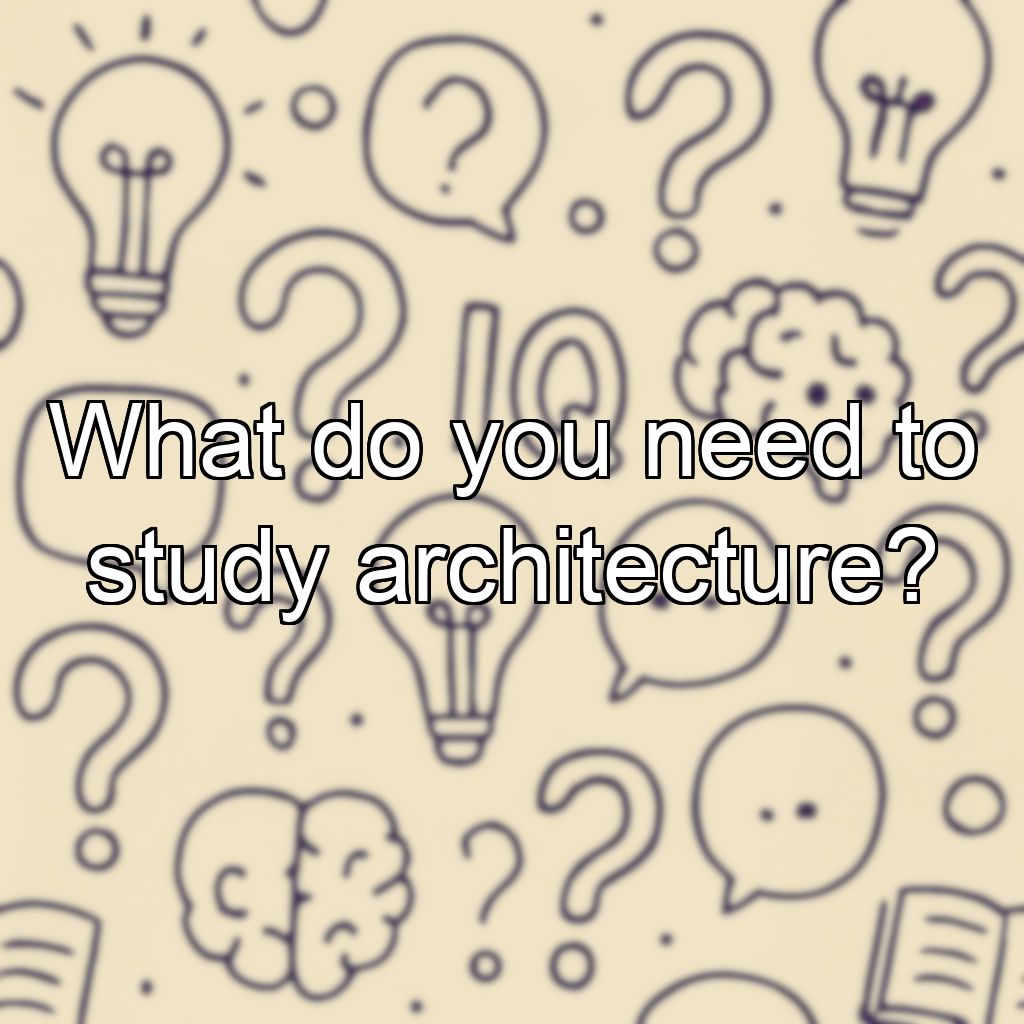What do you need to study architecture?

Requirements to Study Architecture
To pursue a degree or career in architecture, you typically need a combination of academic qualifications, skills, and personal attributes. Below are the main requirements:
Educational Requirements
- High School Diploma: You should have completed secondary education. Subjects like mathematics, physics, art, and design are especially useful.
- Undergraduate Degree: Most architects start with a Bachelor of Architecture (B.Arch) or a related undergraduate degree. Admission may require a strong portfolio, good grades, and sometimes an entrance exam or interview.
- Master’s Program (optional): In some countries, a Master of Architecture (M.Arch) is required for professional practice, especially if your undergraduate degree is not in architecture.
Essential Skills and Qualities
- Creativity and Imagination: Ability to design innovative and functional spaces.
- Technical Skills: Understanding of construction, engineering principles, and building technology.
- Mathematics and Science: Comfort with math and physics for structural calculations and problem-solving.
- Computer Literacy: Proficiency in CAD (Computer-Aided Design) software, 3D modeling, and visualization tools.
- Communication Skills: Ability to present ideas clearly through drawings, models, and verbal presentations.
Portfolio
Most architecture programs require a portfolio showcasing your drawing, design, or creative work. This demonstrates your skills and potential as a future architect.
Additional Steps
- Internships/Work Experience: Gaining practical experience through internships is valuable and sometimes mandatory.
- Licensure: After completing your education, you’ll need to fulfill licensing requirements (such as exams and supervised work experience) to become a registered architect.
Summary: To study architecture, prepare academically (especially in math, art, and science), develop creative and technical skills, build a strong portfolio, and be ready for both academic and professional training.